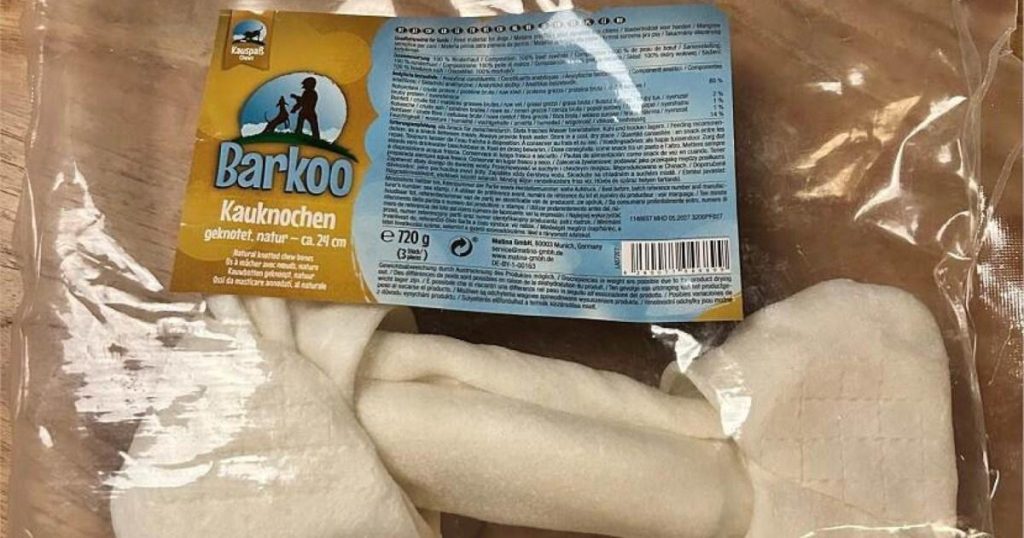The Netherlands Food and Consumer Product Safety Authority (NVWA) has issued a warning against dog chew bones manufactured by the German company Barkoo, following reports of severe neurological abnormalities in dogs, including fatalities, linked to the product. The neurological condition, commonly known as “werewolf syndrome,” manifests in a range of alarming symptoms including behavioral changes, seizures, and hallucinations. Authorities suspect that the chew bones, specifically cheese sticks and other chew products, may contain a toxic substance introduced during the manufacturing process. The NVWA urges dog owners to avoid Barkoo products and to consult a veterinarian if their dog exhibits any unusual neurological symptoms after consuming these treats.
The alarm was raised after incidents in Groningen, Netherlands, where one dog died and another was hospitalized after consuming a Barkoo chew bone. Veterinarians treating the hospitalized dog pointed to the chew bone as the likely culprit, prompting a broader investigation into the product and the manufacturer. The warning issued by the NVWA highlights the potential severity of the condition, which can lead to death. The agency is actively investigating the specific cause of the neurological abnormalities, working to identify the potential toxin and its source within the manufacturing process.
Werewolf syndrome, a disturbing neurological disorder, drastically alters a dog’s behavior and mental state. Symptoms range from heightened excitability and aggression to disorientation and seizures. Veterinarians have reported instances of affected dogs exhibiting hallucinatory behavior, such as attempting to jump through windows or experiencing sudden, unpredictable aggression. The distressing symptoms and the potential for fatal outcomes underscore the critical need for pet owners to heed the warnings and avoid the suspect products.
The potential contamination of the chew bones is believed to have occurred during manufacturing, though the exact source and nature of the toxic substance remain under investigation. One leading theory suggests that the cowhide used in the chews may have been exposed to a toxin during processing. This contamination hypothesis aligns with reports from Germany, where dozens of similar cases emerged in the latter half of 2023. Veterinarian Nina Meyerhoff, based in Hanover, Germany, observed that affected dogs seemed to be hallucinating and exhibiting erratic behaviors.
The concerning reports extend beyond the Netherlands and Germany, with cases also documented in Switzerland, Finland, and Belgium. The wide geographical distribution suggests a potential widespread contamination issue affecting Barkoo products distributed across Europe. The accumulating evidence underscores the seriousness of the situation and the need for a comprehensive investigation to identify the source of the contamination, prevent further exposure, and develop effective treatment protocols for affected animals. The international nature of the problem necessitates collaboration between regulatory agencies and veterinary professionals across the affected countries.
The NVWA’s warning, coupled with the reports from veterinarians and affected pet owners, underscores the importance of vigilance in selecting pet treats. Pet owners are advised to carefully scrutinize the ingredients and origin of pet food and treats, opting for reputable brands with established safety records. In cases where a pet exhibits unusual symptoms after consuming a particular product, it is crucial to consult a veterinarian immediately. Providing the veterinarian with a detailed history, including the type of treat consumed, can assist in accurate diagnosis and timely intervention. The Barkoo case serves as a sobering reminder of the potential risks associated with pet products and the need for proactive measures to protect animal health and well-being.




